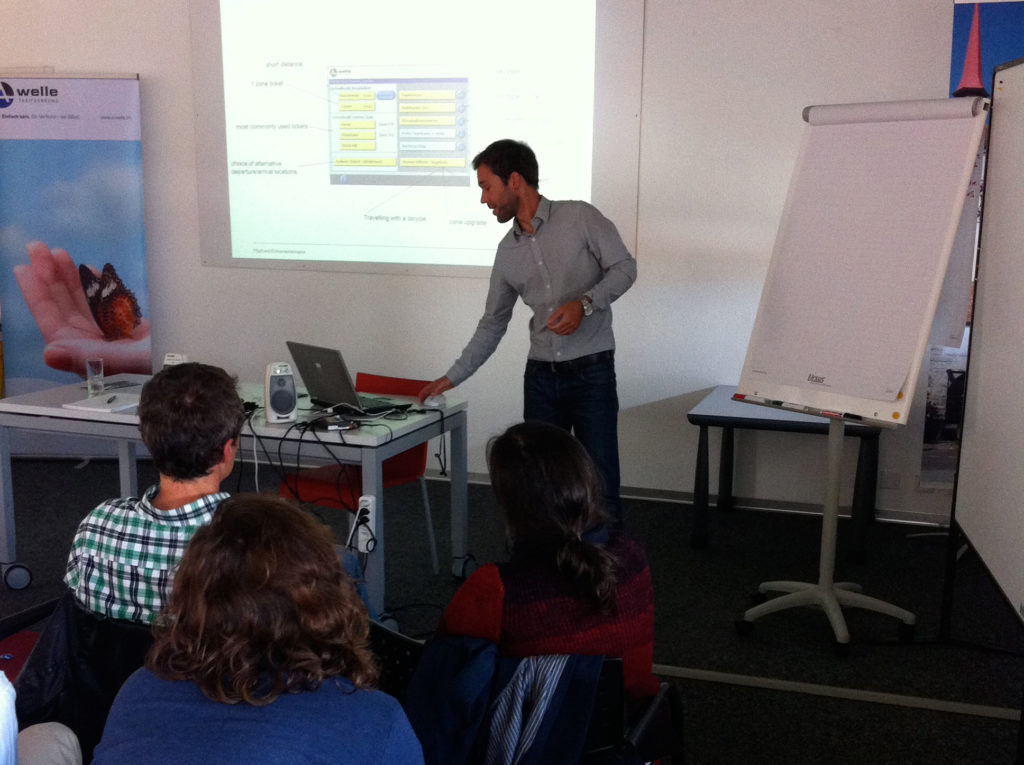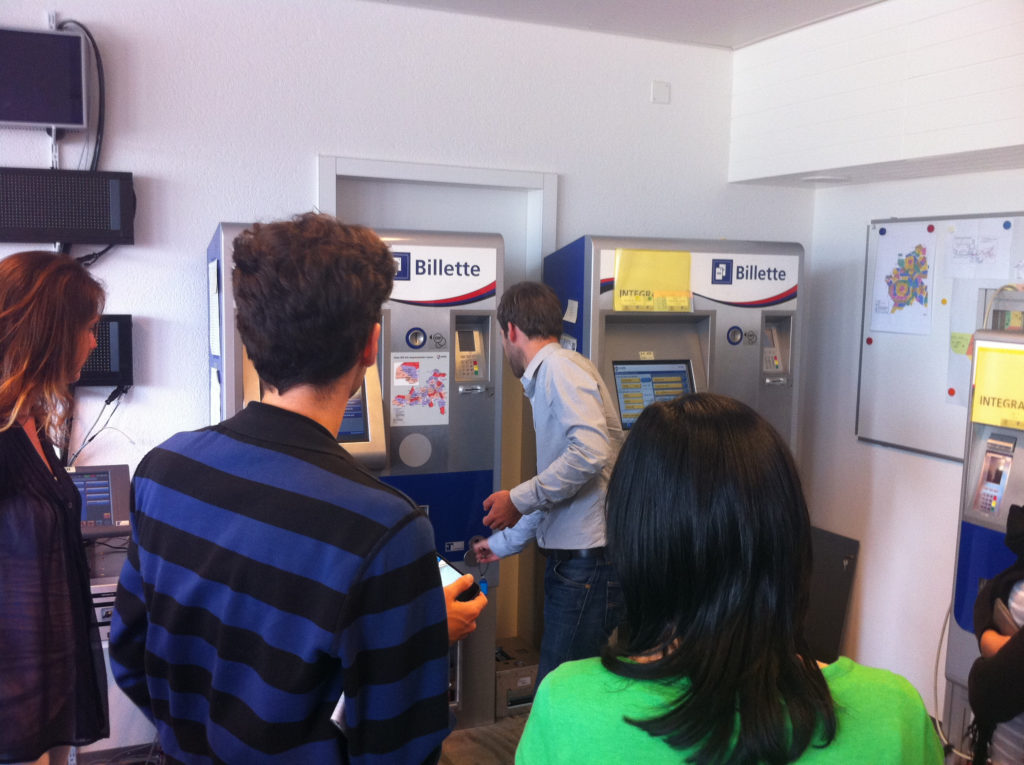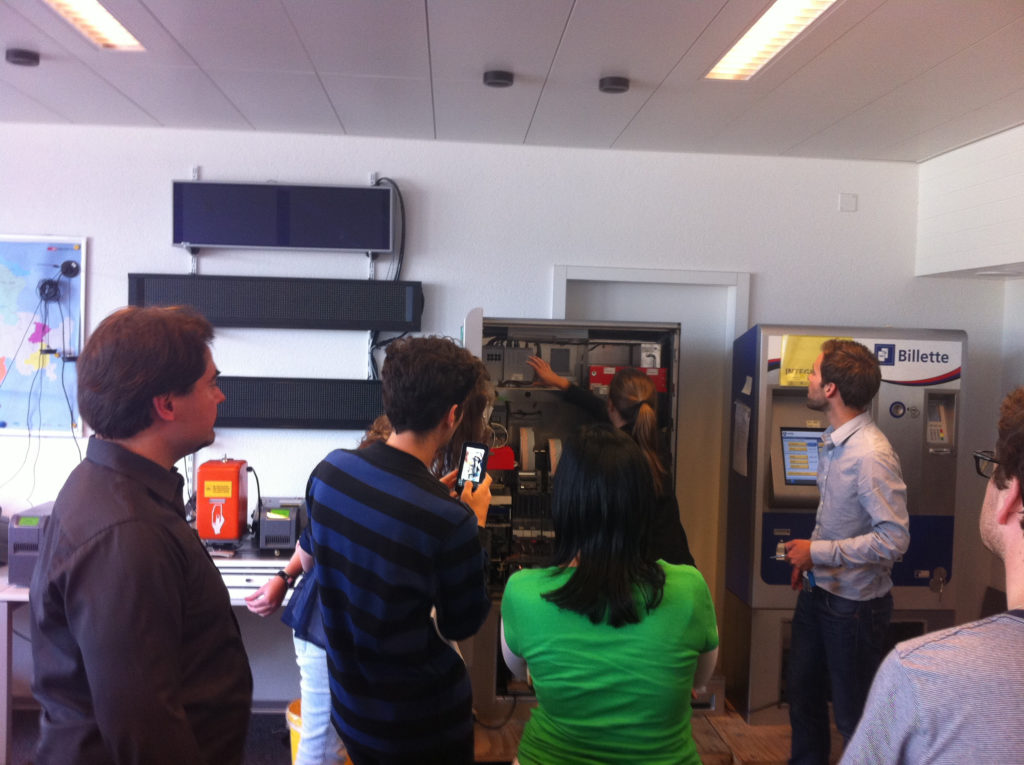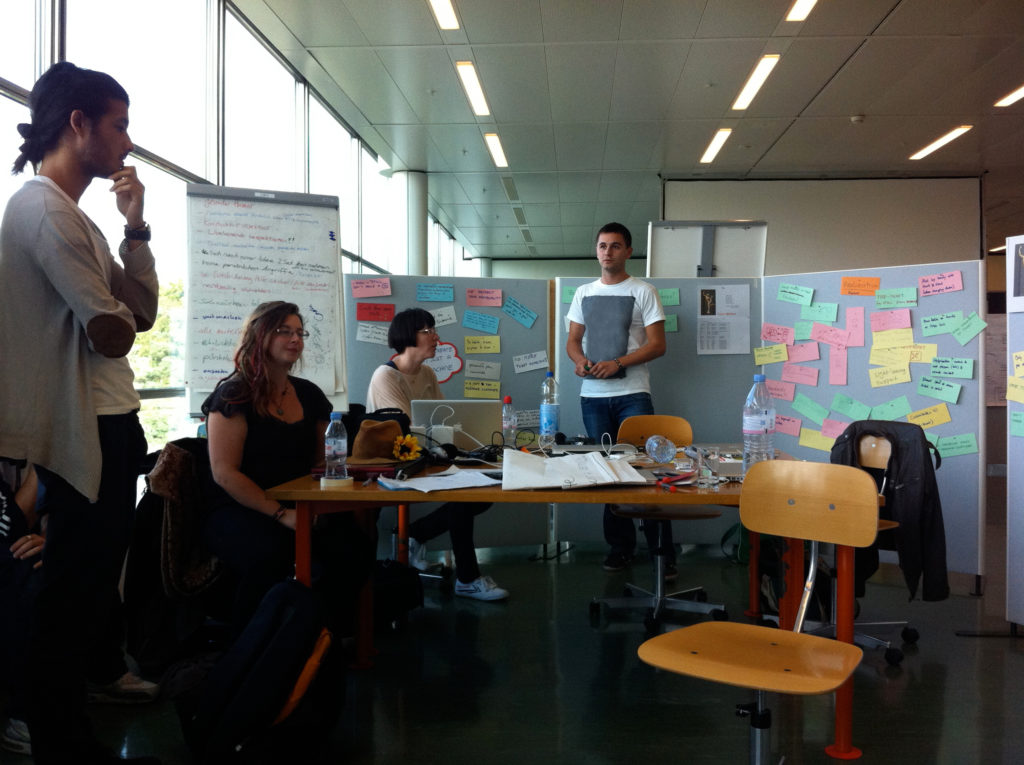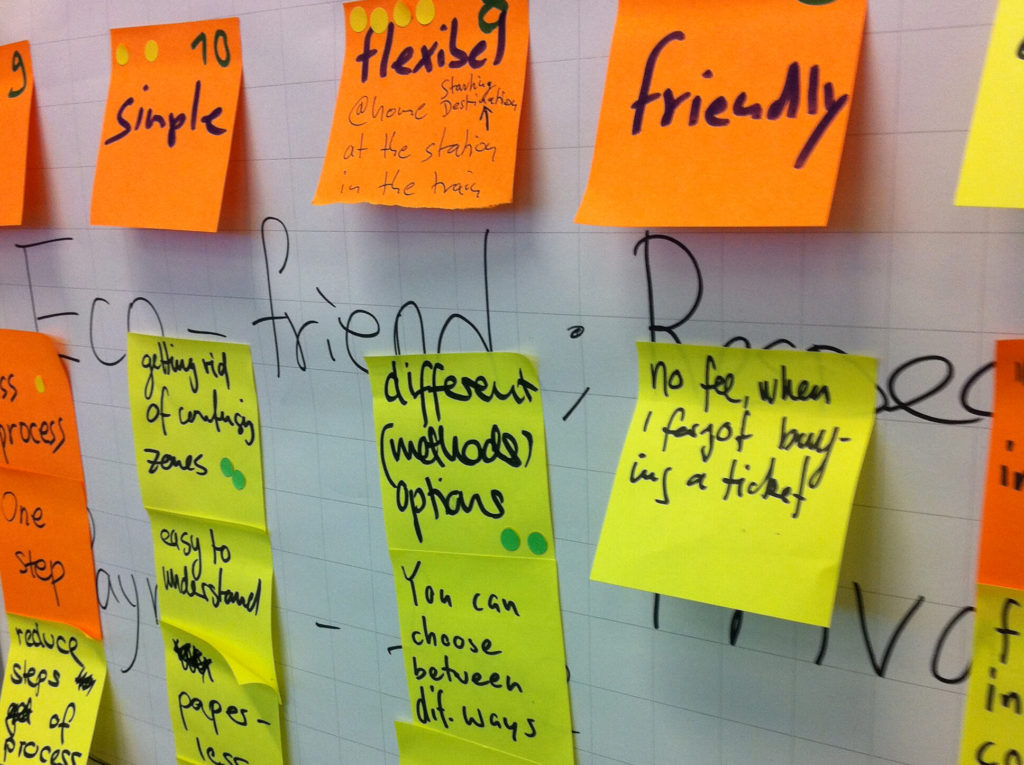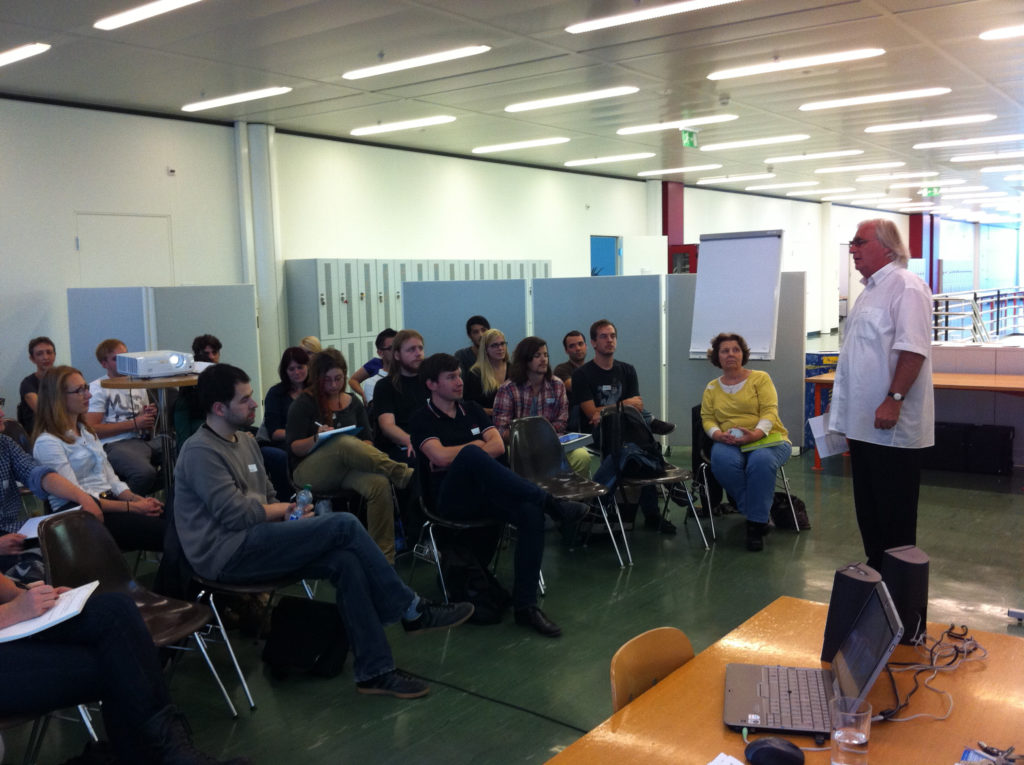
On Track – The future of Ticketing
In collaboration with A-Welle
The project task 2012 goes into the future of ticketing: How will we buy a ticket for the train in the future? How can we improve existing interface and interaction solutions? The project ON TRACK is about the development of new concepts for ticket vending systems in cooperation with A-Welle, a Swiss public transprotation consortium.
Summary
University students nowadays are increasingly challenged within their specific core disciplines. The development of successful products, however, requires additional skills: Students have to be able to apply their knowledge in practice. They also need the abiliy to work efficiently across different disciplines and cultures. And they will have to cooperate in distributed teams – physically and virtually.
In 2012, POLE will be in cooperation with A-Welle, a Swiss public transportation consortium based in Aarau. The task is to conceive and design new, innovative ideas and concepts for future ticketing processes. The outcome will be a new user centered design solution that will improve and simplify existing interfaces.
Keywords
POLE, IPOLE, ON TRACK, A-WELLE, design thinking, user centered design, tvm, ticketing
Goal
The goal is to develop prototypes for new and innovative ticketing solutions.
Initial situation
More than 100 years ago, railway pioneers constructed spectacular and adventurous railway networks across the world. Travellers used to buy tickets made of cardboard and waited for the ticket inspector to punch them. Those days are gone, upcoming technologies have changed this filed fundamentally. Ticket vending machines (TVM) with touch-based displays as well as mobile apps came up few years ago and introduced new business models. Instead of beeing attended personally, customers have to buy their ticket on their own. On one hand, this brings great advantages: No waiting queues in front of the counter, purchase from home, and therefore reduction of costs. On the other hand, the improvements go along with difficulties at the human computer interface: people get lost within the menu, TVM’s are out of order and customers find themselves upset. In 2009, new display-based TVM’s were introduced by A-Welle. Recent customer surverys showed however that there is a need for improvoements and raise the question: How will we buy a ticket for the train tomorrow? How can we optimize the user experience?
Process and results
After a virtual Kick-Off on video conference and a first research approach, the whole team met physically during the Kick-Off week in Windisch. In a team building process, six disciplinary and nationally mixed groups of around 6 students came together to set ON TRACK the further planning: What goals have to be achieved? How to distribute the tasks? What do we expect from each other, what kind of problems might come up? A visit at the A-Welle headquarters gave insights into the requirements, the operating systems of the exisiting ticket vending machines and on the further boundary conditions.
The next steps were based on a virtual cooperation. Virtual meetings on a regular base allowed the teams to bring forward their ideas. They conducted surveys, set up scenarios and developed many prototypes in order to structure the information, the interaction and to control the design. The design concepts were presented along a time line: What are the visions for 2020? How to realize the steps for a nearer future? Concept studies were carried out and tested with mock up’s on different levels.

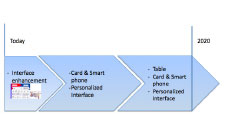
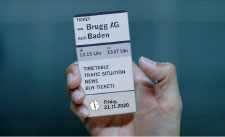
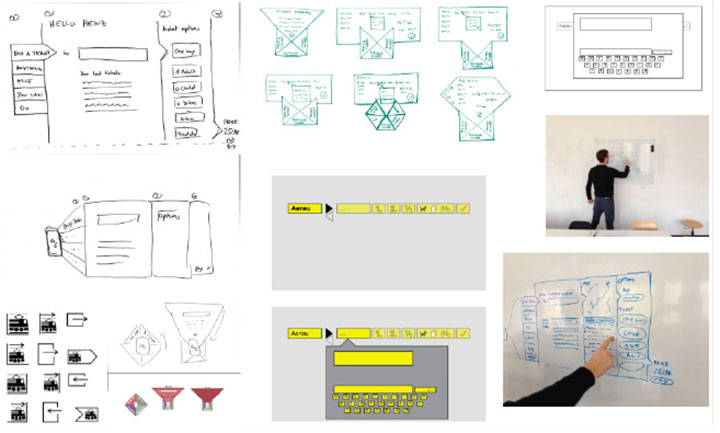
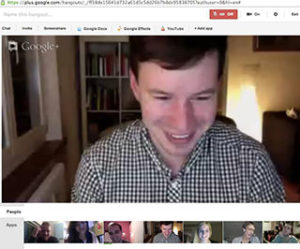
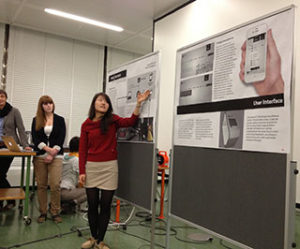
After six month finally the whole group came together again for the final presentation. Six projects containing solutions for new ticketing solutions were presented in front of a jury consiting of the industry partner, design experts and the coaches from the participating universities. Have a look on the results below!
Team Christophorus
- Sarah Geissberger
- Kevin Himmelsbach
- Jee-Eun Kim
- Reto Lehnherr
- Sybille Ramseier
- Marcel Weber
- Stefan Zimmermann
Coaches:
- Mario Doulis (Merz-Akademie)
- Alex Repenning (University of Colorado)
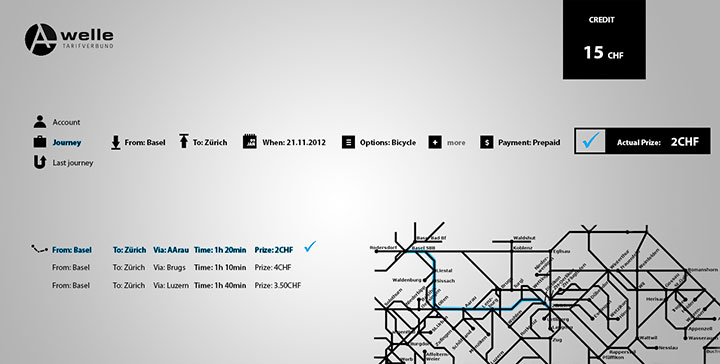
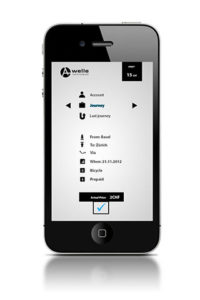
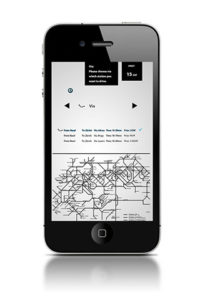
Team Hermes
- Stefanie Brunner
- Patrik Hasler
- Anne Maigatter
- Nicolas Payne
- Isabel Schacher
- Dominik Schuler
- Abigale Stangl
Coaches:
- Magdalena Matescu (FHNW APS)
- Wolfgang Weck (FHNW HT)
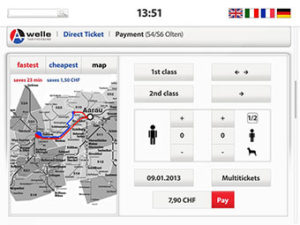
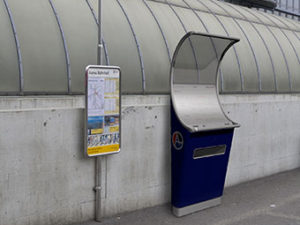
Team Merkur
- Igor Bosnjak
- Livio Cuasio
- Dana Jovanovic
- Roman Rast
- Caroline Schnell
- Daniel Siller
Coaches:
- André Csillaghy (FHNW HT)
- Stephan Schröter (Merz-Akademie)
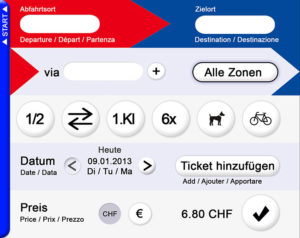
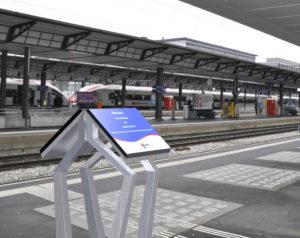
Team Nepomuk
- Catherine Haug
- Tugba Kartal
- Zwetana Künzi
- Patrick Leisinger
- Rosalind O`Brien
- Max Wohlleber
Coaches:
- Ingrid Giel (FHNW HT)
- Wolfgang Weck (FHNW HT)
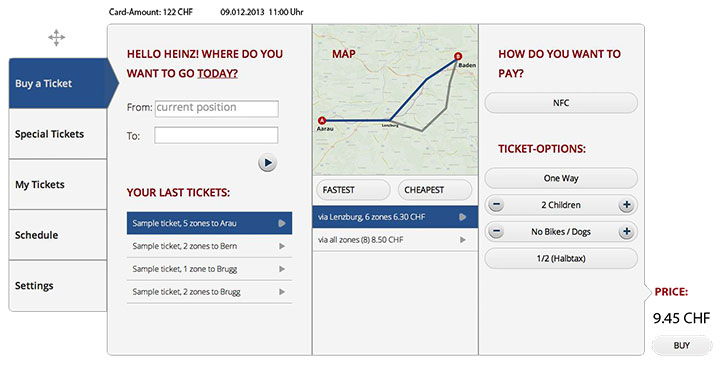
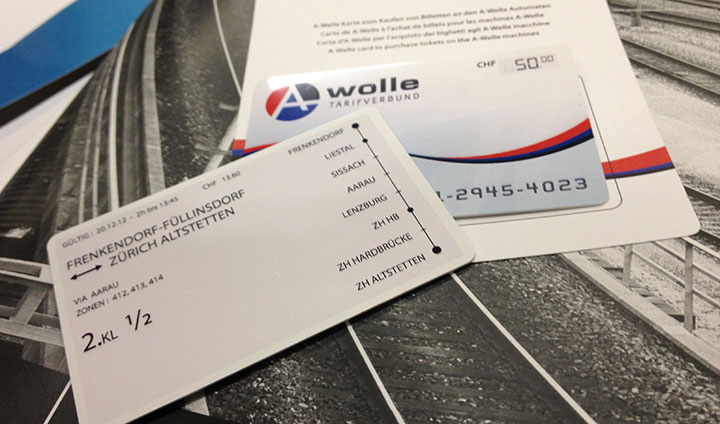
Team Sara la Kali
- Sybille Caselli
- Seamus Forde
- Aline Koller
- Corinna Lässle
- Mirco Novello,
- Daniel Stelz
- Sadie Zukowski
Coaches:
- Uwe Heck (FHNW HT)
- Sebastian Stroschein (FHNW HGK)
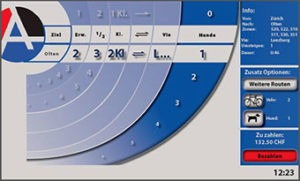
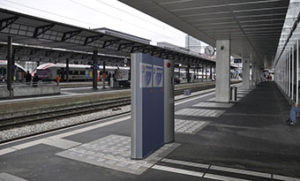
Project details
| Duration: | 1 Semester |
| Teams: | 5 |
| Size of teams: | 5-7 Persons |
Industry partner

Tarivverbund A-Welle
Martin Osuna, Geschäftsführer Tarivverbund A-Welle
Roman Kübler, Kanton Aargau, Departement Bau, Verkehr und Umwelt
Georg von Graefe, Kanton Aargau, Departement Bau, Verkehr und Umwelt
Project lead iPOLE
Christoph Holliger, FHNW, School of Engineering / Academy of Art and Design
Doris Agotai, FHNW, School of Engineering, iCompetence
Sebastian Strohschein, FHNW, Academy of Art and Design
www.pole-project.ch
Partner Universities
- FHNW, School of Engineering
- FHNW, School of Applied Psychology
- FHNW, Academy of Art and Design
- Merz-Akademie, Stuttgart
- University of Colorado
Publications
Artikel A-Welle in Umwelt-Aargau
Contact
Doris Agotai, doris.agotai@fhnw.ch
Christoph Holliger, christoph.holliger@fhnw.ch
